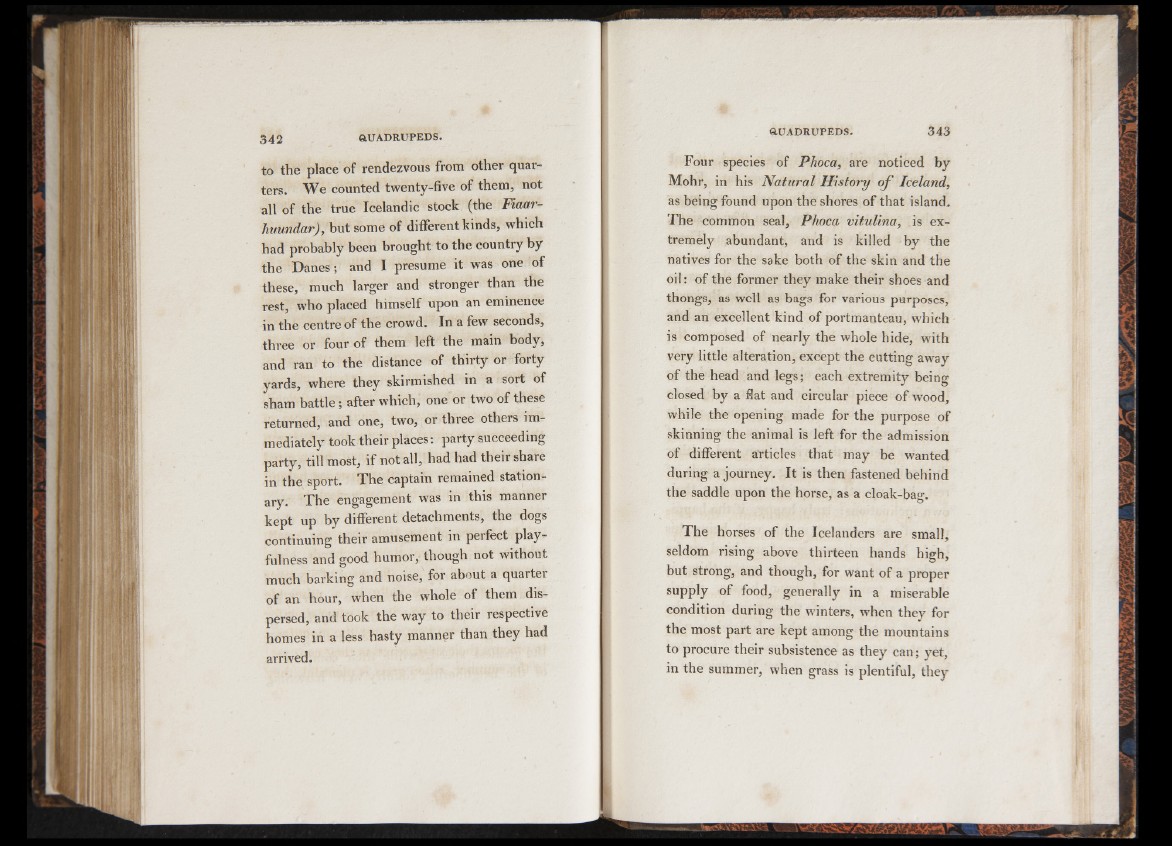
to the place of rendezvous from other quarters.
We counted twenty-five of them, not
all of the true Icelandic stock (the Fiaar-
huundar), but some of different kinds, which
had probably been brought to the country by
the Danes; and I presume it was one of
these, much larger and stronger than the
rest, who placed himself upon an eminence
in the centre of the crowd. In a few seconds,
three or four of them left the main body,
and ran to the distance of thirty or forty
yards, where they skirmished in a sort of
sham battle; after which, one or two of these
returned, and one, two, or three others immediately
took their places 1 party succeeding
party, till most, if not all, had had their share
in the sport. The captain remained stationary,
The engagement was in this manner
kept up by different detachments, the dogs
continuing their amusement in perfect play^
fulness and good humor, though not without
much barking and noise, for about a quarter
of an hour, when the whole of them dispersed,
and took the way to their respective
homes in a less hasty manner than they had
arrived.
Four species of Phoca, are noticed by
Mohr, in his Natural History o f Iceland,
as being found upon the shores of that island.
The common seal, Phoca vitulina, is extremely
abundant, and is killed by the
natives for the sake both of the skin and the
oil: of the former they make their shoes and
thongs, as well as bags for various purposes,
and an excellent kind of portmanteau, which
is composed of nearly the whole hide, with
very little alteration, except the cutting away
of the head and legs; each extremity being
closed by a fiat and circular piece of wood,
while the opening made for the purpose of
skinning the animal is left for the admission
of different articles that may be wanted
during a journey. It is then fastened behind
the saddle upon the horse, as a cloak-bag.
The horses of the Icelanders are small,
seldom rising above thirteen hands high,
but strong, and though, for want of a proper
supply of food, generally in a miserable
condition during the winters, when they for
the most part are kept among the mountains
to procure their subsistence as they can; yet,
in the summer, when grass is plentiful, they